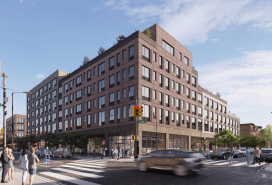Ask an Expert: How many sales is too many?

Q. Future buyer here. Should I have concerns about buying in a building where a large number of units are being sold in a one year period? For example, I looked at 200 W. 20th. Have to wonder if it's due to shareholders wanting to move up to a larger unit, or something negative like bedbugs.
A. Should you be concerned? Maybe. Maybe not. Due to the variety and depth of our experts’ very interesting responses (six from real estate brokers, three from real estate lawyers and one from an appraiser), we’re departing from our usual format and printing each reply individually.
Roberta Axelrod, Director of Residential Sales & Rentals, Time Equities: If a purchaser is looking to buy in a building where a lot of units have been sold in the last year, this is not necessarily as a result of a problem. However, the purchaser and their attorney need to be especially careful to do their due diligence to see if there is a problem in the building.
The first place to start is with reading the coop or condo board minutes to see what is going on in the building and carefully reviewing the last two years of financial statements. A question to the property manager about sales turnover might yield useful information. The number of units sold needs to be viewed in relation to sales in prior years and as a percentage of the total building to place the number of units in a context. Sometimes there is a surge in units sold, when the market begins to recover, as unit owners often decide not to sell when the market is weaker and to wait for improved conditions.
Robert Braverman, real estate attorney, Braverman & Associates: This is certainly something to look into before signing a contract. However, during the course of your attorney’s due diligence—which should include, among other things, reviewing the building’s financial statements, Board minutes, and determining whether there is any pending litigation or large construction projects that if not started, have been contracted for—you may realize that the large number of moves comes down to demographic needs; i.e., people moving to larger apartments.
I would take a look at the last three to five years of turnover history to see just how unusual the recent numbers are. Also, consider this: If all of the units are selling in this otherwise difficult market, that probably bodes well for the building. In other words, if the building was infested with bed bugs, someone would have found out and word would have leaked. Ask the seller the question though. By hitting all of the usual prongs of good due diligence, you should be able to assuage your concerns or learn something that gives you pause for concern.
Eric Goidel, real estate attorney, Borah Goldstein Altschuler Nahins & Goidel: One cannot automatically read anything sinister into a spike in building sales. Sellers may just have finally gotten used to the "new normal" in sales prices and there may be an accretion effect of apartments having been off of the market for the past couple of years and now first being offered for sale.
A prospective purchaser should, however, always perform due diligence, including the review of Board minutes for the last several years, as well as several years of financials. Such a review should establish whether your concerns are valid. Absent some derogatory information, a prospective purchaser should look at the large inventory in a building as presenting an opportunity to pit sellers of comparable apartments against each other, thereby obtaining the best possible purchase price.
Doug Heddings, president, Heddings Property Group I think you need to do some homework. If interested in a property at a particular building, you may have to wait until your attorney does due diligence before discovering any "issues" that may be influencing people to move. That said, there are a multitude of reasons that several people would decide to sell in one year. One such reason is that someone received an excellent price and it inspired others to try to get the same. Bottom line is that most issues will become transparent when your attorney reads the minutes of the condo or co- op board.
Stephen G. Kliegerman, Executive Director of Development Marketing, Halstead Property: It could be that the sponsor or an investor is selling some or all of their units as well. That said, if a buyer has concerns about why people are selling they or their attorney should read the coop board meeting minutes from the last year or two which should provide a reasonably good assessment as to what if anything may be prompting a sale. Often buildings just hit a maturity cycle and as a lot of people bought apartments between 2000 and 2005 it would stand to reason that given the average apartment owner moves every 7 or so years the timing may just be a natural cycle.
Deanna Kory, senior vice president, The Corcoran Group: Generally most of the time in my experience, it is sheer coincidence. It may happen more in buildings with smaller units as people need to move at some point. As the market improves you may see this happen more because of the pent up desire to sell. Some people have been waiting for a better time to sell and generally there is a collective sense of that. So those waiting come on at that time.
It shouldn't be difficult to find out if anything is wrong. Look at the financials first, and ask questions. Once you have a level of satisfaction all is okay and have negotiated a deal, the buyer's attorney will review board minutes and ask the managing agent specific questions. Anything that is negative should show up in that review.
Jonathan Miller, president/CEO, Miller Samuel Inc.: We always look at a 3-5% turnover rate as normal. This is consistent with the overall housing stock as well. That is, four sales in a 100-unit building in one year would be normal. In a 20 unit building it might be the average of the past few years.
Of course we are not considering a new conversion or construction which needs several years after the last sale to stabilize.
High sales activity can suggest:
- A sponsor that is unloading units.
- A change in policy and disaffected exodus
- A looming problem that insiders are aware of
- Nothing- just a random event that a larger number of units sold.
It's something that should prompt closer scrutiny but may not mean anything.
Jeffrey Reich, real estate attorney, Wolf Haldenstein Adler Freeman & Herz: If I was aware that an unusually large number of units were sold in a relatively brief period of time, or if I was aware that there were an unusually large number of units in one building on the market at the same time, it would cause me to conduct a particularly thorough due diligence in order to try to determine the cause of the mass exodus.
In today’s market a large number of units for sale could simply indicate the sellers have reached the conclusion that the market has rebounded sufficiently that it would be a good time to sell or it could mean something more nefarious like the pendency of a large assessment, the commencement of litigation or the discovery of a potential liability.
Prospective purchasers can attempt to determine the cause of an unusual number of sales by reviewing the minutes of board meetings, reviewing the footnotes to recent financial statements, interviewing management personal, interviewing building staff members or residents or by searching the numerous real estate blogs that focus on local properties.
Gordon Roberts, Managing Director, Warburg Realty: This is an example where it can really be worthwhile to work with a knowledgeable broker whom you trust – because they may have experience in the building, or reliable resources. But theoretically, at last ditch during the purchasing process, your attorney should uncover and address any problems during the due diligence period prior to signing a contract of sale. Otherwise, you can learn a lot from on-line research, going to Open Houses, and asking questions.
That said, a relatively large number of sales in a building may not be a red flag. In the case of 200 West 20th Street, it’s a desirable, Emory Roth-designed building that’s made up entirely of small apartments. And it’s a co-op that allows 80% financing, which is attractive to many buyers. I spoke to the Managing Agent for the building (something you can do, too), who said it was not unusual for the building to have 10-12 sales annually – that it was the nature of the building – since most of the apartments are studios. People’s lives change, they relocate, outgrow, or whatever --- all the things that contribute to the fluidity of the Manhattan real estate market.
I also spoke to a broker who had an exclusive in the building (contract signed), who said she knew of nothing negative about the building. Her sellers had to move for personal reasons, but they loved the apartment and the building very much. And no, no bedbugs.
Jacky Teplitzky, Managing Director, Prudential Douglas Elliman: It all depends on the percentage of apartments being sold. If it is more then 20% from the whole building then yes I would be concerned. Some buildings are large ones, therefore I would not go according to the actual number of units, but according to the actual percentage of apartments being sold.
Trouble at home? Get your NYC apartment-dweller questions answered by an expert! Send us your questions.


























